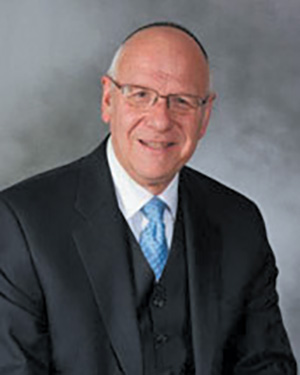
Yom Kippur
Tefillat Mincha, the Mincha service on Yom Kippur, revolves around the reading of Sefer Yonah. I do not mean to suggest that the entire service centers around the themes found in the book, but rather that much of the tefilla is taken up by the reading itself. The story of the prophet Yonah is well known (although few of us realize that he appears earlier in Tanach, in Sefer Melachim), but the messages that we are taught through his story are often overlooked. It is for this reason, for those important messages that we can learn, that I regard ourselves as privileged to be able to read the entire Sefer Yonah on Yom Kippur—even though it is read at that time of the day when many of us begin to “fade.”
A simple review of the perakim would help us discover ideas that are essential to hear on this holiest of days. The first chapter shows us how Hashem listens to prayers and accepts the offerings of those who are not part of the Israelite nation (the sailors), while the second perek teaches us that one cannot escape the will of God. In the third chapter we learn of how Hashem responds to the tefillot of those in dire need, and the last perek lets us know that God’s compassion extends to all and He forgives all people who are truly regretful and who sincerely change their ways.
And although there are other, more subtle, messages that we can glean from this sefer, I am always moved by the simple cry of the sea captain when he calls to Yonah to pray to Hashem. “Ma lecha nirdam?” “How can you sleep so soundly?” he shouts, “Kum, kra el Elokecha!” “Get up and cry out to your God!” As the sun begins its journey to the western horizon, darkening the skies, and as the day’s light begins to fade on Yom Kippur, precisely at that time the words of the ship’s captain stir us all to realize that there is a “storm” of problems and concerns outside and this is the time to pray to God and not to sleep.
The words of the ship’s captain speak to us especially at that time of the day. The tefillot of Yom Kippur are many and the services are lengthy. It is only human nature to lose focus with our minds starting to stray. But it is also true that the prayers are moving and are magnificent poetry, with many ideas woven within their poetic beauty. We must listen to the words of the captain begging us to wake up and not give in to the temptation of allowing our attention to wander off the purpose of Yom Kippur.
Sadly, however, I feel that I must add the following.
I find it so unfortunate when individuals find this Mincha part of the day a fitting time to “take a break” (how often have I overheard the post-Yom Kippur question: “So how long was your break?”), and even to return home to enjoy a short nap. Over the years, many Jewish communities throughout the world took upon themselves the practice of remaining awake the entire Yom Kippur night as they could not imagine sleeping at such a crucial time! And yet we wait for a break to take a nap—something we wouldn’t dare do during our business hours. The voice of the captain—but also of the prophet who is crying to us “Ma lecha nirdam?” Why are you sleeping on the day that Hashem judges us all? “Kum, kra el Elokecha!”—this is the time to get up and cry out to God!
The challenge we face on this holiest of days is not simply to avoid food and drink. We are also challenged to get up and cry out to God.
For ourselves.
For our families.
For our nation.
Rabbi Neil Winkler is the rabbi emeritus of the Young Israel Fort Lee and now lives in Israel.










